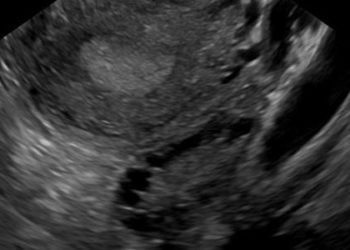Bariatric surgery not associated with hypothesized reduction in opioid use
Image: PD
1. Relative to the time before surgery, opioid use was increased by 18% over the 3 years following bariatric surgery.
2. Of the study sample, 77% of chronic opioid users continued chronic use after bariatric surgery.
Evidence Rating Level: 2 (Good)
Study Rundown: Chronic pain is a known co-morbid condition of obesity, possibly due to the increased stress placed on the musculoskeletal and vascular systems. To treat this pain, patients often simply turn to pain medications, such as opioids, and become chronic users. With the presumed beneficial effects of bariatric surgery on pain, the authors hypothesized that opioid use in obese chronic users should decrease as well. Interestingly, the study revealed chronic use of pain medication was not mitigated but rather demonstrated a small increase in the years post-surgery. Future research should focus on investigating the reasons behind the increased use of opioids in obese patients, as well as the barriers opioid tapering following bariatric surgery.
Click to read the study, published today in JAMA
Relevant Reading: Musculoskeletal findings in obese subjects before and after weight loss following bariatric surgery
In-Depth [retrospective cohort]: This study recruited 11,719 patients from 9 states between 2005-2009. Among individuals with chronic opioid use before surgery, 77% (95% CI, 75%- 80%; n = 723) continued chronic use the year after surgery, 20% (95% CI, 17%-22%; n = 182) changed to some use, and 3% (95% CI, 2%-4%; n = 28) reported no opioid use. In chronic opioid users, mean daily morphine equivalents increased from 45.0 mg (95% CI, 40.0-50.1) the year before surgery to 51.9 mg (95% CI, 46.0-57.8) the year after surgery. The adjusted incidence rate ratio for morphine use postoperatively compared with preoperative levels, was 1.13 (95% CI, 1.06-1.20) in the first year after surgery and 1.18 (95% CI, 1.11-1.26) 3 years after surgery.
By John Prendergass and Rif Rahman
More from this author: Reducing surgical complications may increase costs, Protected sleep periods improve intern alertness and sleep duration, ADHD medication decreases rates of criminality in ADHD patients, Low dose aspirin shows net clinical benefit in patients with first unprovoked venous thromboembolism, Rare TREM-2 mutation implicated in Alzheimer’s Disease
© 2013 2minutemedicine.com. All rights reserved. No works may be reproduced without expressed written consent from 2minutemedicine.com. Disclaimer: We present factual information directly from peer reviewed medical journals. No post should be construed as medical advice and is not intended as such by the authors, editors, staff or by 2minutemedicine.com. PLEASE SEE A HEALTHCARE PROVIDER IN YOUR AREA IF YOU SEEK MEDICAL ADVICE OF ANY SORT.









